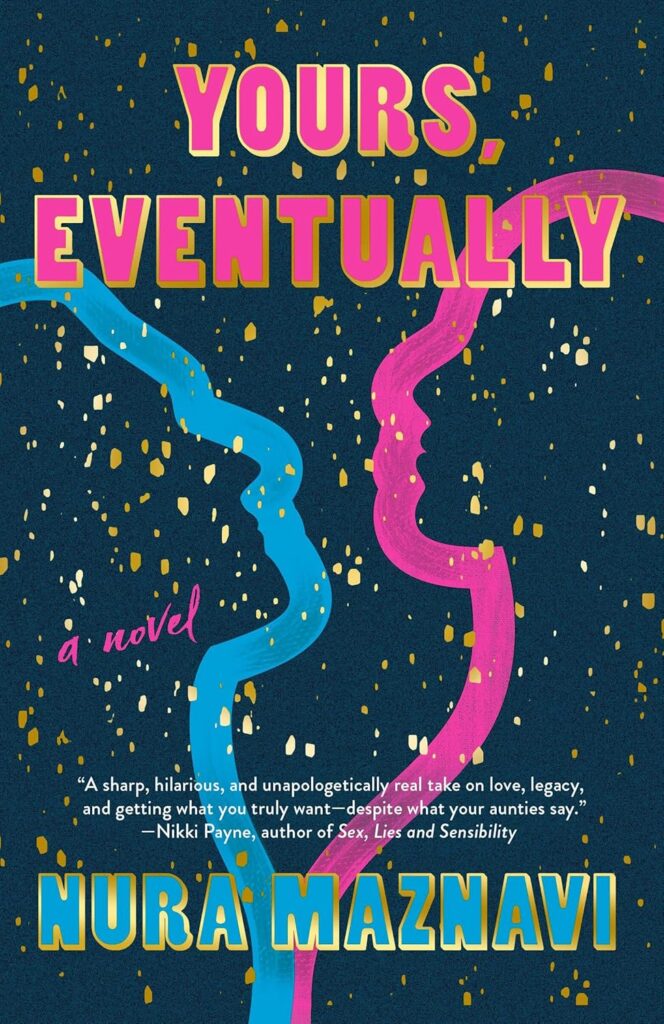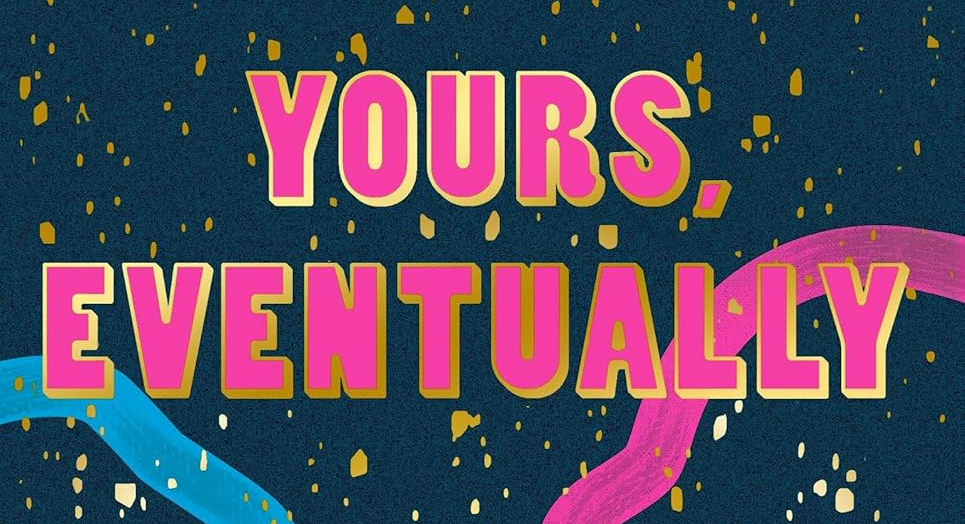

Nura Maznavi’s Yours, Eventually is a combination of a Pakistani drama and a Jane Austen novel. Neither of these things on their own is particularly compelling to me, but put them together and set the action in the Bay Area, and I’m in. Like, really in. I am so glad I got the audio version from the library so I could enjoy Farah Kidwai’s narration of the Pakistani aunties as the cherry on top.
The story is comfortingly familiar: a wealthy widowed patriarch with three daughters living in the Bay Area loses his fortune, and the family is forced to downsize. The main character, Asma, is the middle daughter. She’s an accomplished ER doctor and the self-described ‘backbone’ of the family since her mother died. Poor Asma’s heart is broken because eight years prior, the one and only love of her life – a charming boy named Farooq – was rejected as a suitor by her family because he’d dropped out of college and gone his own way to seek his fortune. Since then, Asma has thrown herself into her career, but lo and behold! Farooq comes back into her life when his sister and brother-in-law rent the Palo Alto house that Asma’s family is vacating for more affordable digs up north in Sacramento. Farooq has just sold his startup for half a billie, and now he’s considered the most eligible bachelor in the community.
Hijinks ensue. Missed signals. Crossed wires. Tender hearts afraid of taking another risk. All of this means a thread of unbearable tension running through the book until, of course, Asma gets over herself and Farooq gets humbled, and they eventually realize they’ve both just been a couple of idiots who belong together after all.
This is a retelling of Persuasion, so there’s nothing particularly ground-breaking in the plot, but I think that made it all the more enjoyable for me. It was like comfort TV. I knew what would happen in the end, but that didn’t stop me from getting fully invested in the story and riding the emotional roller coaster along with Asma.
Maznavi’s writing is excellent, but I’m most in awe of her ability to capture the intricate nuances of American-Pakistani society. I’m white but married into a Pakistani family and community, and I feel a little protective of how this group is portrayed in media, but Maznavi was able to walk the fine line of criticizing some aspects of the culture that can make life painful for second- and third-generation Pakistanis without demonizing anyone. For example, Asma’s father is a typical “uncle” whose priorities seem old-fashioned and sometimes deeply incongruous. Rather than turn him into a monster, Maznavi portrays him as a man who loves (and needs) his daughters but is stuck in a framework that limits his ability to see what they really need. In short, it felt authentic.
Definitely keeping an eye out for Maznavi’s next work.

